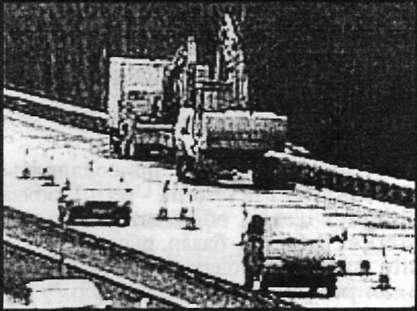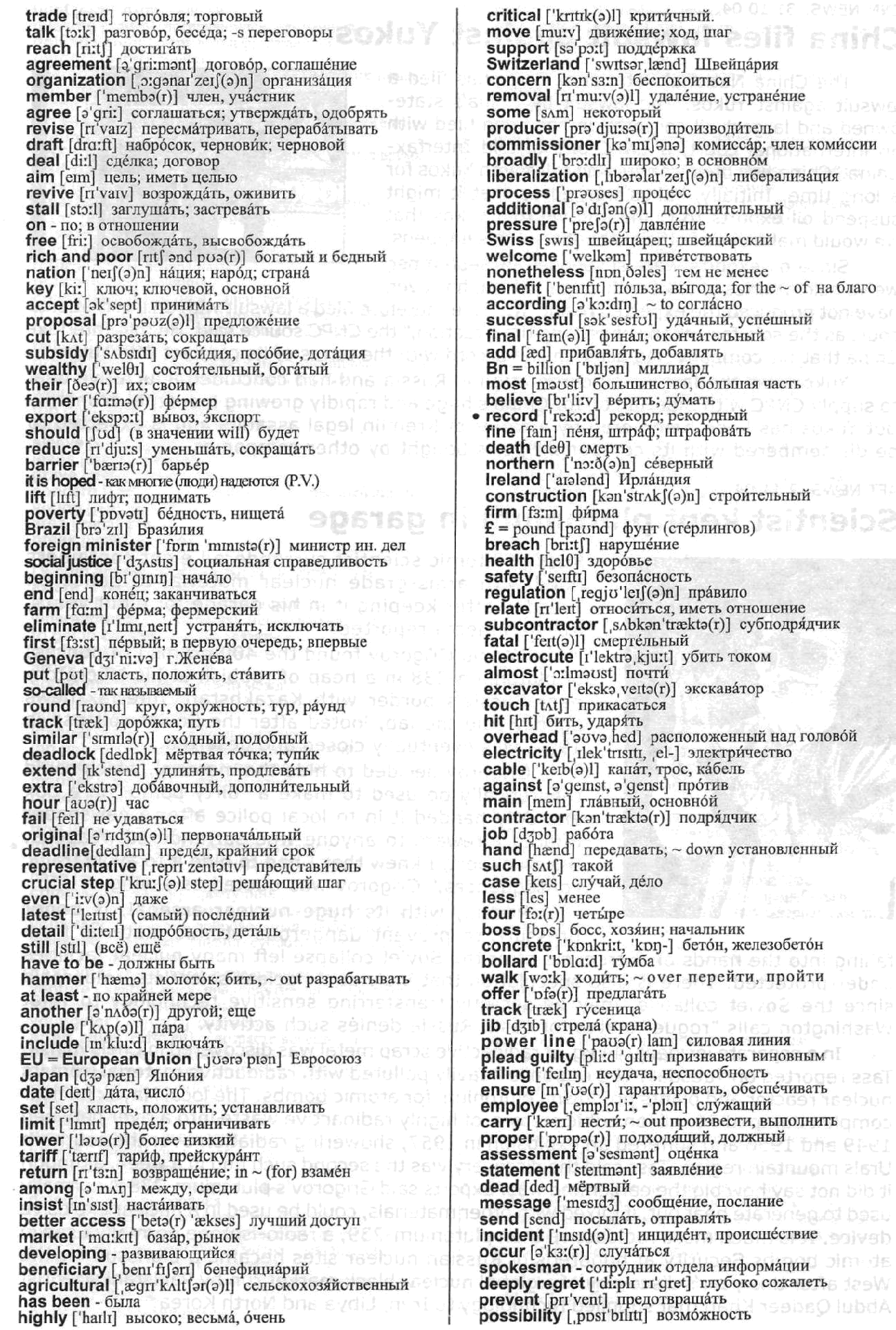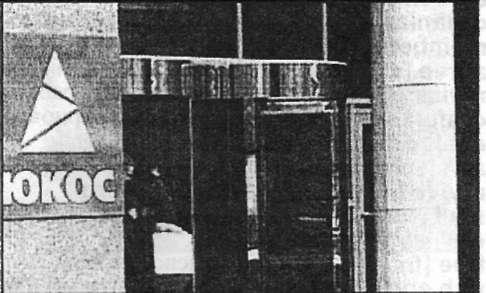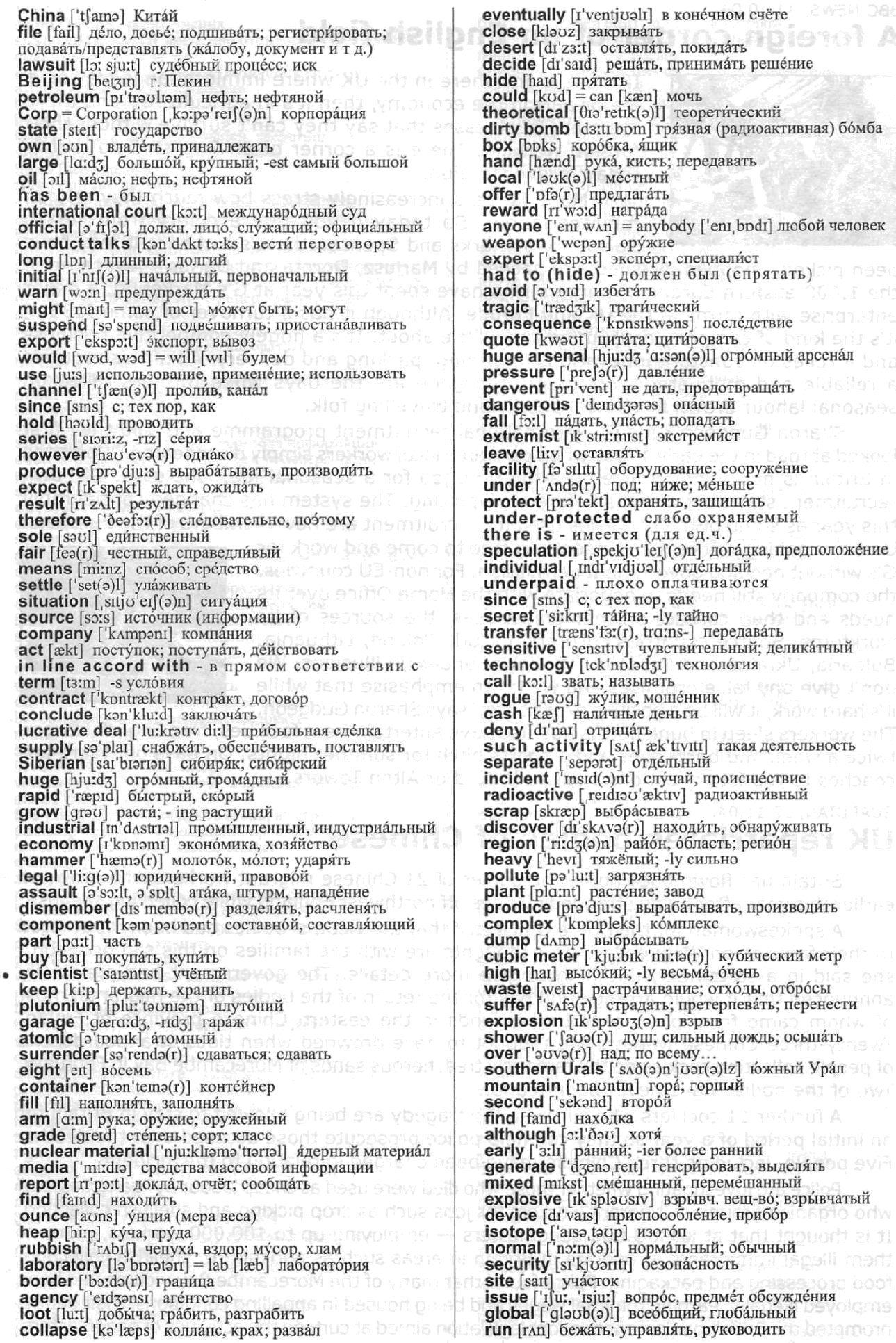
- •Наши рекомендации
- •Thatcher attends "coup plot' case
- •Putin's Atomic Boast
- •Plea not to judge Muslims by acts of extremism
- •Kodak to shed 600 uk jobs
- •World Trade Organization
- •Record fine for worker's death
- •China files lawsuit against Yukos
- •Scientist kept plutonium in garage
- •A foreign corner of an English field
- •Uk repatriates bodies of Chinese
- •Opec: The oil cartel in profile
- •Egyptians release Israeli 'spy'
- •Independent, 10 . 11 . 04 .
- •'Come bite me!' right...
- •'Treasure hunt' for bandit's loot
- •Thai protesters die in custody
- •Funny old world
- •Pupils suspended over airgun attack
- •Singapore to protect schools with guards
- •Naked man climbs into la jet
- •Hunt for missing golfing tourist
- •Military to help young offenders
- •'We're not all hooligans'
- •Shipwreck 'could yield billions'
- •Paddling policeman grabs record
- •Fact file: Nimrod Rl
- •Submarine issues call for help
- •Bird flu claims 147 tigers in Thailand
- •100 Million paper birds
- •Anglo-Saxon coin fetches 3230 000
- •Deadly typhoon tears across Japan
- •From Russia With Love
Record fine for worker's death
One of Northern Ireland's biggest construction firms has been fined J100,000 for breaches of health and safety regulations. The fine relates to the death of Gregg Cousins, 20, who was working for a subcontractor when he was fatally electrocuted almost three years ago. An excavator he was touching hit overhead electricity cables. The fine against Farrans, the main contractor on the job, is the biggest handed down in such a case.

Mr Cousins had been in his new job for less than four weeks when he was killed. His boss had been moving
concrete bollards with an excavator and Mr Cousins walked over to offer his help. He put his hand on the track of the excavator and, at the same time, the jib hit an overhead power line and he was electrocuted. Farrans pleaded guilty to failing to ensure the safety of employees and failing to carry out a proper risk assessment.
In a statement, the dead man's family said an even stronger message could have been sent out. They said they believed that, had the incident occurred in Great Britain, the fine would have been much higher. A spokesman for Farrans said the company deeply regretted the death of Mr Cousins and that it had taken steps to prevent the possibility of any similar incident occurring in the future.
16

17
C N N N E W S , 31 . 10 . 04 .
China files lawsuit against Yukos
The China National Petroleum Corp. has filed a lawsuit against Yukos. The lawsuit by China's state-owned and largest oil corporation has been filed with an international court, a CNPC official told Interfax-China."China has been conducting talks with Yukos for a long time. Initially, Yukos warned us that it might suspend oil exports to China and we told Yukos that we would make use of official channels if this happens.

Since oil exports were suspended in September, we've held a series of talks with Yukos, which, however,
have not produced the expected result. We have therefore filed a lawsuit with an international court as the sole fair means of settling the situation," the CNPC source said. He told Interfax-China that his company had acted in line accord with the terms of its contract with Yukos.
Yukos was the largest oil corporation in Russia and had concluded a lucrative deal to supply CNPC with Siberian oil for China's huge and rapidly growing industrial economy. But Yukos has been hammered by a series of Kremlin legal assaults and is expected to be dismembered with its component parts bought by other companies.
A F T N E W S , 2. 11. 04.
Scientist kept plutonium in garage
Russian atomic scientist surrendered eight containers filled with arms-grade nuclear material to police on Tuesday after keeping it in his garage for eight years, Russian media reported.

Leonid Grigorov found the 400 grams (14 ounces) of plutonium-238 in a heap of rubbish at his laboratory near Russia's border with Kazakhstan. Interfax news agency said the lab, looted after the Soviet collapse in 1991, was eventually closed and deserted.
Grigorov decided to hide the material, which could theoretically be used to make a "dirty bomb," in a box and only handed it in to local police after a newspaper offered a reward to anyone who surrendered weapons. "As an expert, I knew that I had to hide it to avoid tragic consequences," Grigorov was quoted as saying.
Russia, with its huge nuclear arsenal, is under pressure to prevent dangerous atomic material from falling into the hands of extremists after the Soviet collapse left many nuclear facilities
under-protected. There is also speculation that individual nuclear scientists, underpaid since the Soviet collapse, may be secretly transferring sensitive technology to what Washington calls "rogue" states for cash. Russia denies such activity.
In a separate incident, 44 kg of radioactive scrap metal was discovered in Chelaybinsk, Tass reported on Tuesday. The region is heavily polluted with radioactive material from its nuclear reactor and plants producing plutonium for atomic bombs. The local Mayak nuclear complex dumped 76 million cubic meters of highly radioactive waste into a river between 1949 and 1956 and suffered an explosion in 1957, showering radiation over the southern Urals mountain region. Tass said the discovery was the second such find in a week, although it did not say how big the earlier find was. Experts said Grigorov's plutonium-238 is normally used to generate heat but, if mixed with other materials, could be used in a nuclear explosive device. It is much more radioactive than plutonium-239, a radio-isotope normally used in atomic bombs.Security at hundreds of Russian nuclear sites became a big issue for the West after this year's discovery of a global nuclear black market run by Pakistani scientist Abdul Qadeer Khan that supplied technology to Iran, Libya and North Korea.
18

19
BBC N E W S , 11 . 10 . 04 .
